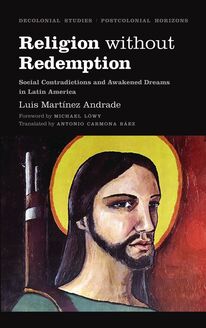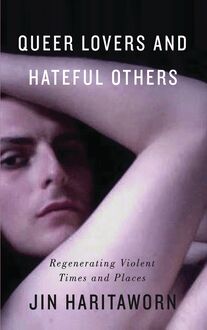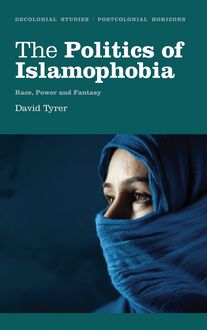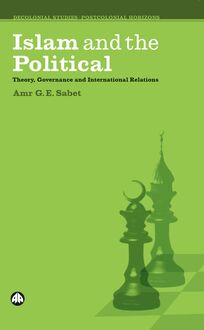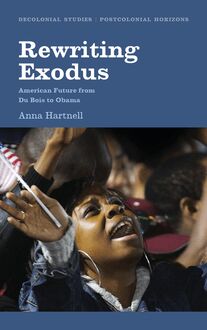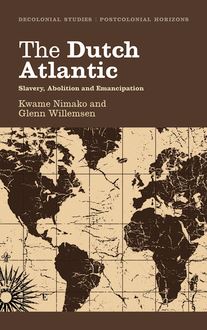Queer Lovers and Hateful Others , livre ebook
133
pages
English
Ebooks
2015
Vous pourrez modifier la taille du texte de cet ouvrage
Obtenez un accès à la bibliothèque pour le consulter en ligne En savoir plus
Découvre YouScribe en t'inscrivant gratuitement
Découvre YouScribe en t'inscrivant gratuitement
133
pages
English
Ebooks
2015
Vous pourrez modifier la taille du texte de cet ouvrage
Obtenez un accès à la bibliothèque pour le consulter en ligne En savoir plus
Publié par
Date de parution
20 juillet 2015
Nombre de lectures
3
EAN13
9781783712700
Langue
English
Poids de l'ouvrage
1 Mo
This book explores this concept of 'queer regeneration'. Queerness has entered a transitional phase as it becomes co-opted by neoliberalism to make punishment and neglect appear as signs of care and love for diversity. To understand this transition, Jin Haritaworn looks at the environments in which queer bodies have become worthy of protection, discussing the everyday erasures that shape life in the inner city (focusing on Berlin), and how queer activists actively seek out and dispel the myths of sites of nostalgia for the 'invented traditions' of women-and-gay-friendliness.
The author explores a rich archive of media, arts, policy and activism, including posters, newspaper reports, hate crime action plans, urban projects, psychological studies, demonstrations, kiss-ins, political speeches and films. Through these sources, the relationships between Islamaphobia, racism within Europe and the United States, and the global war on terror serves to reinforce the politics of homonationalism.
List of Figures
Acknowledgements
Introduction: Queer Regenerations
1. Setting the Scene
2. Love
3. Hate
4. Queer Nostalgia
5. Conclusion: Kiss Good Morning, Kiss Good Night
6. Epilogue: Beyond the ‘Most Homophobic’
Notes
Bibliography
Index
Publié par
Date de parution
20 juillet 2015
Nombre de lectures
3
EAN13
9781783712700
Langue
English
Poids de l'ouvrage
1 Mo
Queer Lovers and Hateful Others
Decolonial Studies, Postcolonial Horizons
Series editors: Ramón Grosfoguel (University of California at Berkeley) Barnor Hesse (Northwestern University) S. Sayyid (University of Leeds)
Since the end of the Cold War, unresolved conjunctures and crises of race, ethnicity, religion, diversity, diaspora, globalization, the West and the non-West, have radically projected the meaning of the political and the cultural beyond the traditional verities of Left and Right. Throughout this period, Western developments in ‘international relations’ have become increasingly defined as corollaries to national ‘race-relations’ across both the European Union and the United States, where the reformation of Western imperial discourses and practices have been given particular impetus by the ‘war against terror’. At the same time hegemonic Western continuities of racial profiling and colonial innovations have attested to the incomplete and interrupted institutions of the postcolonial era. Today we are witnessing renewed critiques of these postcolonial horizons at the threshold of attempts to inaugurate the political and cultural forms that decolonization now needs to take within and between the West and the ‘non-West’. This series explores and discusses radical ideas that open up and advance understandings of these politically multicultural issues and theoretically interdisciplinary questions.
Also available
Religion without Redemption: Social Contradictions and Awakened Dreams in Latin America Luis Martínez Andrade
Rewriting Exodus American Futures from Du Bois to Obama Anna Hartnell
The Dutch Atlantic Slavery, Abolition and Emancipation Kwame Nimako and Glenn Willemsen
Islam and the Political Theory, Governance and International Relations Amr G.E. Sabet
The Politics of Islamophobia Race, Power and Fantasy David Tyrer
Queer Lovers and Hateful Others
Regenerating Violent Times and Places
Jin Haritaworn
First published 2015 by Pluto Press 345 Archway Road, London N6 5AA
www.plutobooks.com
Copyright © Jin Haritaworn 2015
The right of Jin Haritaworn to be identified as the author of this work has been asserted in accordance with the Copyright, Designs and Patents Act 1988.
British Library Cataloguing in Publication Data A catalogue record for this book is available from the British Library
ISBN 978 0 7453 3062 4 Hardback ISBN 978 0 7453 3061 7 Paperback ISBN 978 1 7837 1269 4 PDF eBook ISBN 978 1 7837 1271 7 Kindle eBook ISBN 978 1 7837 1270 0 EPUB eBook
This book is printed on paper suitable for recycling and made from fully managed and sustained forest sources. Logging, pulping and manufacturing processes are expected to conform to the environmental standards of the country of origin.
Typeset by Stanford DTP Services, Northampton, England Text design by Melanie Patrick Simultaneously printed by CPI Antony Rowe, Chippenham, UK and Edwards Bros in the United States of America
CONTENTS
List of Figures
Acknowledgements
Introduction: Queer Regenerations
1 Setting the Scene
2 Love
3 Hate
4 Queer Nostalgia
5 Conclusion: Kiss Good Morning, Kiss Good Night
6 Epilogue: Beyond the ‘Most Homophobic’
Notes
Bibliography
Index
LIST OF FIGURES
Figure 1: Hermannplatz Berlin-Neukölln, 22 June 2013: Banner with the writing ‘CSD [Christopher Street Day] – [raised middle finger] – T*CSD [Transgenial Christopher Street Day]: SPOT THE DIFFERENCE’. Raining from the window, flyers with the Khalass!!! We’re vex! manifesto
Figure 2: ‘Defend yourselves! Fear-free through the village’
Figure 3: Screenshot of online article ‘Migrant kids against gays: Homophobic Berlin’
Figure 4: Kiss-in in front of mosque (May 2007)
Figure 5: Lesbian part of the triptych Love Deserves Respect by the Lesbian and Gay Association Germany
Figure 6: ‘You gay or what? Homophobia among Turks and other Germans’
ACKNOWLEDGEMENTS
What does it take to invent our bodies, desires and communities from the ashes of racism, colonialism and the gender violence that accompanies them, and beyond white moulds that are often premised on racialised death? After the shower , the image by Charlie Abdullah Haddad that is featured on the cover of this book, depicts the artist on their own. Hands wrapped around their naked torso, looking calmly at the camera, their stance conveys self-love and self-sufficiency. The work of surviving violence and visioning alternatives often feels solitary. And still, the subject’s gaze opens up, reaches out: I see you, too.
I began the work that this book builds on as a queer of colour community organiser in Berlin in the early 2000s. It was a time when white queer and trans communities turned so racist that it became difficult to be in them. Meanwhile, people of colour were once again being divided, this time between the ‘too queer’ and the ‘too homophobic’. As a person whom this changed terrain assigned new privileges on account of their ‘sexually free’ non-Muslim, non-Black Thai parentage, I am indebted to those who have taken risks with me while facing the brunt of racism.
Massive appreciations to all who have spoken up against gay imperialism, and inspired me to do the same. Many thanks to my comrades of the early days, Tamsila Tauqir, Jennifer Petzen and Koray Yılmaz-Günay – you will always be my role models. Over the years, I am proud to have joined shoulders in struggle with many fierce and brilliant queer, trans, straight and cis people of colour divesting from and building alternatives to racist and colonial regimes of gender and sexuality. A special thanks to Dzifa Afonu, Alexia Apolinario, Teht Ashmani, Laura Barker, Cengiz Barskanmaz, Sanchita Basu, Sokari Ekine, Meral El, Charlie Haddad, Rima Hussein, Nosh Khwaja, Mîran Newroz, Ashai Nichols, Raju Rage, Juli(a) Rivera, Aykan Safoğlu, Noah Sow, Danía Thaler, Anouchk Ibacka Valiente and Nika Zablotsky. I am grateful to Aren Aizura, Sara Ahmed, Sarah Bracke, Stacy Douglas, Craig Gilmore, Suhraiya Jivraj, Christian Klesse, Sarah Lamble, PG Macioti, Johanna Rothe and Gina Velasco for supporting this work at a time when it was embattled. Rachel Gorman, Noa Ha, Lu Lam, Olumide Popoola, Johanna Rothe, Salih Wolter, Koray Yılmaz-Günay and Nika Zablotsky have read and commented on chapters – thank you for giving me company and sharing your wisdoms, inspirations and expertise with me.
The penalties for doing antiracist, anti-colonial and anti-imperialist work on the intersections are high. Luckily, all the cool kids are already doing it anyway. I am fortunate to have collaborated with and learned from many brilliant minds, who each model ways of navigating oppressive systems and institutions with genius and grace. Thank you Anna Agathangelou, Paola Bacchetta, Sandeep Bakshi, Sirma Bilge, Karma Chavez, Kusha Dadui, Ena Dua, Fatima El-Tayeb, Esra Erdem, Umut Erel, Freda Fair, Chris Finley, Honor Ford Smith, Ruth Wilson Gilmore, Andil Gosine, Che Gossett, Noa Ha, Christina Hanhardt, Tobias Hübinette, Ren-yo Hwang, Adi Kuntsman, Gail Lewis, Chin-ju Lin, Martin Manalansan, Victor Mendoza, Angie Morrill, Chinyere Oparah, Silvia Posocco, Encarnación Gutiérrez Rodríguez, Humaira Saeed, Kiri Sailiata, Andrea Smith, Riley Snorton, Milena Solomun, Sunera Thobani, Lee Ann Wang and Pascal Yorks for imparting knowledge and support in the right times and places.
Amardeep Kaur has held my hand, soothed me and accepted me many times when I felt hopeless and overwhelmed – thank you for being here with me through these major life transitions.
Lu Lam has cheered me on during this last stretch and convinced me that I can thrive rather than just survive – that decolonial love can inform and transform our work entirely.
Universities are sites of institutional and interpersonal violence as well as places where many amazing people pass through. I have been lucky to have taught versions of these chapters in classrooms filled with smart and creative individuals, including at CUNY, Goldsmiths, Helsinki, Hamburg, Humboldt and Technical Universities Berlin, LSE, Kaohsiung Medical University, Basel, Northwestern, and in my current home, the Faculty of Environmental Studies at York. Among the (then) students who engaged with the ideas that ended up here are Babette Burrell, Samay Arcentales Cajas, Alvis Choi, Jessica Cook, Vero Diaz, Chelsea Fung, Tina Garnett, Ronak Ghorbani, Brandon Hay, Erin Howley, Anabel Khoo, Tamika Jarrett, Naila Lalji, Charmaine Lurch, Mosa Neshamá McNeilly, Melanie Patenaude, Princie Reza, Río Rodríguez, Boké Saisi, Negar Taymoorzadeh, Katie Ungard, Tess Vo and Jennisha Wilson, as well as Anu Radha Verma, who thoughtfully formatted several chapters of this book.
Words, however lonesome they may feel to string together, are never the creation of one individual alone. The ones in this book, too, have more co-authors than I can acknowledge or remember. I feel lucky to have moved in, through and alongside many groups and communities. Queer Lovers and Hateful Others is dedicated to the unsung heroes who gather informally at Berlin kitchen tables. At the same time, the book has been sustained and at times informed by several organisations, including Decolonizing Sexualities Network (fka Decolonize Queer), Next Genderation, SUSPECT and QEKON (Queer and Ethnicity Conference). The final touches to the book happened while I was co-organising the Critical Ethnic Studies conference in Toronto, alongside fabulous people such as Nadia Kanani, Kim Abis, Rachel Gorman, Shana Griffin, Sailaja Krishnamurti, Mona Oikawa, Syrus Marcus Ware and Krysta Williams. Being part of a collective that unapologetically centred queer and trans Black, Indigenous and people of colour leadership from the start was an incredibly positive experience. It has given me hope for what’s to come, and what’s possible.
This book, then, has sprung from many marvelous waves and grounds. May it return to them, and be at their service.
INTRODUCTION: QUEER
